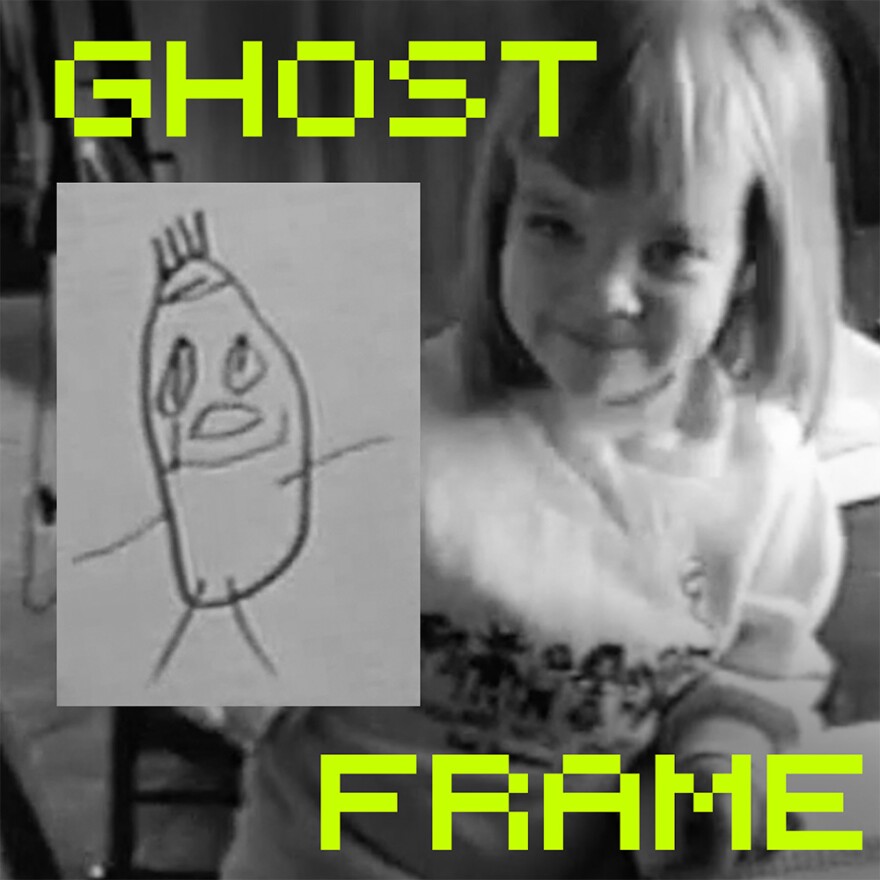Sarah Beth Morgan has an eye for color. As an illustrator and animation director, her richly-hued designs have appeared in children’s books, animated short films, murals and in work for companies like YouTube, Chipotle and Bath & Body Works.
After a decade of working in the motion design industry, Morgan recently found herself at a career crossroads. She turned to a different medium – podcasting – to help her work through uncertainty surrounding her future as a designer.
Throughout five immersive episodes of “Ghost Frame,” Morgan offers a firsthand look into the volatility of her industry, which she said has become increasingly difficult to navigate due in part to artificial intelligence and shrinking marketing budgets.
“I've just had a lot of conversations with other artists about how uncertain they feel and how even people in different industries, like slightly different creative industries, are just feeling very adrift,” she said. “And it definitely feels like there's no uniting place for people to discuss these feelings.”
With thousands of downloads so far, Morgan has found her story resonating with a variety of listeners, not just motion designers.
“There's people sending me paragraphs of their experiences, and that's been really cool,” Morgan said. “I knew my [industry] friends had this experience, but I didn't know everyone was feeling this right now, so that’s been really rewarding and also motivating.”
An avid listener of podcasts like “Radiolab” and “Reply All,” she took an online course for writing podcasts as narrative nonfiction. Then she began breaking down elements of her own story into themes for each episode, such as balancing a career with parenthood.
When her son was born in 2023, a whole different set of challenges emerged, including postpartum depression and anxiety.
“It was like everything came to a screeching halt, and I'm like, ‘What do I do?’” she said. “It's not like a job that you're going to finish. Of course, I'm grateful for my son … but I feel like something people don't talk about is how hard it is.”
Morgan’s narration weaves personal stories and relatable humor into conversations with other creative professionals who’ve experienced similar challenges. Guests include a former boss of Morgan’s at a motion studio in Los Angeles, a British animator also navigating motherhood, and Columbus-based illustrator and bestselling author Andy J. Pizza, whose own podcast, “Creative Pep Talk,” has topped 500 episodes.
“I'm talking to people with different perspectives,” Morgan said. “People who are closer to retirement … people who own companies, people who are freelancers, people who are younger than me and have a different perspective on where the industry is going because they just got out of school and are actually in the thick of it. Collecting all these ideas from people has been really insightful.”

Navigating the industry
From the time she graduated from the Savannah College of Art and Design in 2014 until about 2019, work was booming, she said. With everyone attached to their smartphones and the rise in popularity of Instagram and TikTok reels, creative agencies were scrambling to get their content on people’s screens.
“As annoying as that is, it helped my industry,” Morgan said.
At the onset of the pandemic in 2020, she said uncertainty crept in and the amount of available work decreased dramatically as companies lost money from their creative budgets. That was also around the time artificial intelligence started becoming more prevalent.
“I think it just started kind of going downhill from there,” Morgan said. “It's not like I don't have work now. I still have work, but it's changing. And I feel a lot more insecure.”
‘It all started with a banana’
Morgan traces her creative roots back to being a 4-year-old sitting at the dining room table, making doodles with markers and craft paper. There’s grainy camcorder video of the moment she held up her masterpiece to show her mother. It was an oblong figure with stick arms and legs and a smiling face. She named it “Banana Man.”

She recalled this moment in an episode of the podcast, weaving in audio from that ‘90s video recording. As a kid, Morgan said, she didn’t understand the “existential purpose” of that drawing, but as she explained in her narration:
“It turns out I was building something: A point of view, a voice, a future career in drawing things for a living and somehow turning my silly little banana man into a big girl job. Fast forward a few decades, the markers are fancier sometimes, the deadlines are real, and suddenly I'm asking myself, ‘Wait, is this still what I want to do? Is this still fun? Have I wandered off the path, or is this just what doing art for work feels like?’”
Since “Ghost Frame” is a personal project for Morgan, she built it in her spare time, which is limited these days. Though she currently doesn’t have plans for a second season, she’s still thinking about where her podcasting journey could lead her next.
“It's hard because I haven't had a project like this in so long where I'm like excited,” she said. “I haven't had that craving to put pen to paper for myself in a long time. But I have had a lot of ideas.”
Creating the podcast and talking with other creatives in the industry has helped her work through some of the professional confusion.
“I do want people to feel hope for our industry, and if they're having a career crisis, know that it's okay to be in transition,” Morgan said. “I would just hope that what other people get out of it is feeling heard and not feeling alone.”



